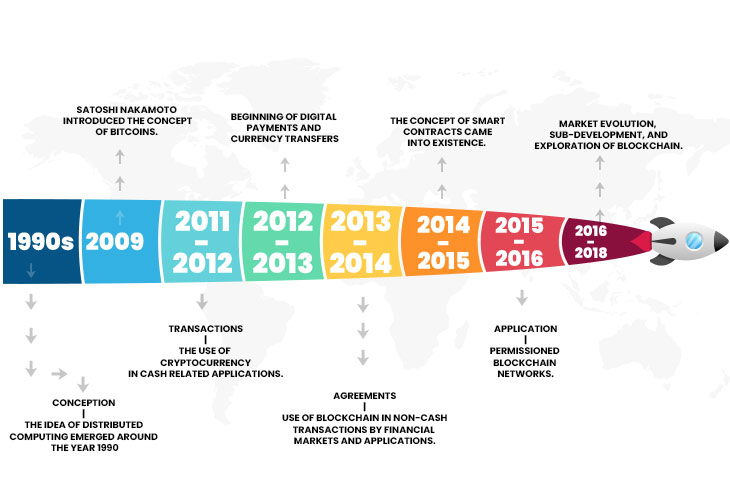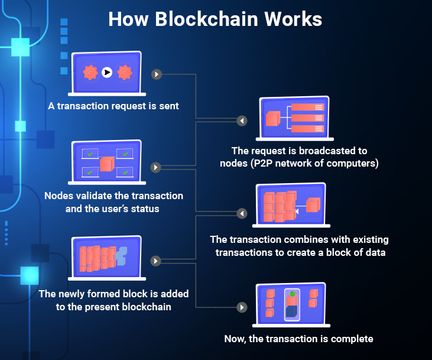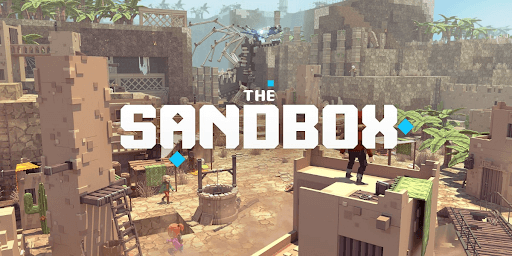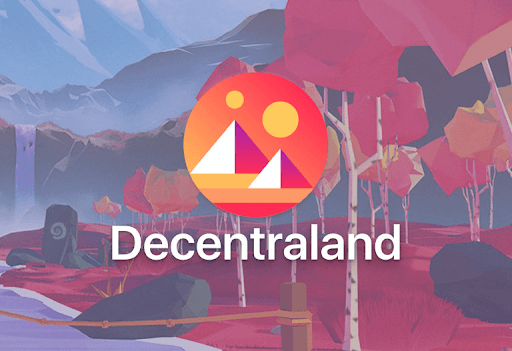Blockchain is a technology much-hyped after the metaverse came into the picture. Though not very new, it has become a topic of discussion among millions of people worldwide. Many of them are still uncertain about what is blockchain and its uses in the metaverse. If you also find the term “blockchain” and its relationship with metaverse bewildering, this article intends to make it crystal clear. Before we begin explaining the meaning of blockchain, let’s first trace its roots to understand it in its present form easily.
History of Blockchain
If we talk about how blockchain emerged, the blockchain timeline takes us way back to the year 1991. In 1991, Stuart Haber and W. Scott Stornetta visualized what we know today as blockchain. They worked on a cryptographically-protected chain of blocks with document timestamps that no one could tamper with. After a year in 1992, they made their system more efficient with the inclusion of Merkle trees to collect more documents in one block. However, blockchain saw the rays of the limelight when Satoshi Nakamoto (referred to as the father of blockchain) evolved the concept of Bitcoin. After that, core developers continue to enhance the digital ledger technology, bringing blockchain to various spheres, including metaverse. To make the blockchain history a bit more clear, below is a detailed diagram of the blockchain’s evolution. Now that you are familiar with how blockchain originated, it is easier to understand what it means. Hence, let’s dive into the detailed explanation of blockchain.
Meaning of Blockchain
Simply explained, a blockchain is a shared and unchangeable digital ledger that records transactions and tracks a network’s assets. These assets can be both tangible (house, cash, etc.) or intangible (patents, copyrights, etc.). While blockchain can be used to store and record anything of value, it is mostly used to register information pertaining to cryptocurrency transactions, DeFi smart contracts, and NFT ownership. Some examples of blockchain include Bitcoin and Ethereum. Anyone can connect to and transact on the Bitcoin and Ethereum blockchain. After learning blockchain’s meaning, the next question you may have is how it works. Well, let’s answer the same before moving to the relationship and application of blockchain in the metaverse.
How Does Blockchain Work
To understand how blockchain works, let’s take Bitcoin as an example. One bitcoin represents a single unit (BTC) of digital currency. Like all other digital currencies, it holds no value unless we trade goods and services to control more currency. To record the amount of Bitcoin we have, blockchain technology uses a digital file or ledger to track all transactions done using Bitcoin. Blockchain distributes this ledger worldwide through a private computer network that stores data and performs computations. Each computer of this blockchain network is called a Node and contains a ledger file copy. Now, suppose we want to send you 6 BTC. In this case, we will broadcast a message to the blockchain network that the Bitcoin amount in our account should be reduced by 6 BTC. And, the amount of Bitcoin in your account should increase by the same value. After making the broadcast, each node receives and validates the message, applies the transaction to its ledger, and updates the account balances. Now, we can summarize the above process in a few simple steps, as stated below.
Transaction request
Firstly, someone requests a transaction, like we requested a transfer of 6 BTC to your account in the example above.
Broadcasting
Next, the transaction request is broadcasted to a peer-to-peer (P2P) network consisting of computers called nodes.
Validation
Now, nodes use some algorithms to validate the transaction and status of the user. The verified transaction can involve anything ranging from cryptocurrency and contracts to records or other information.
New block creation
After validation by the nodes, the transaction joins other transactions to form a new data block for the ledger.
Block addition
The newly created block is added to the already existing (permanent and unchangeable) blockchain. This step completes the transaction. After learning how the blockchain works, we are in a better position to talk about its implications in the metaverse. But before discussing the same, let’s first refresh our brain about what metaverse stands for.
Meaning of Metaverse
If you are not familiar with what is metaverse, it is a digital environment where you can socialize using avatars. It uses various hardware and software technologies, such as Artificial Intelligence, Mixed Reality, mobile apps, edge computing, and blockchain (the one we are currently discussing). Now that you know what blockchain and metaverse are, it is time to understand their relationship. If you know what blockchain has to do with metaverse, its usage will be pretty clear.
How Metaverse Links to the Blockchain
Many tech enthusiasts across the globe wonder what metaverse has to do with blockchain. Well, we have a simple explanation. As you already know, the metaverse is a three-dimensional virtual reality world where you make interactions with digital objects and others in an immersive environment. A lot of transactions are executable in the metaverse. However, real-world currencies are not an appropriate fit for the decentralized, real-time, self-sufficient, interoperable, and persistent metaverse. Thus, blockchain cryptocurrency found its place in the metaverse as a payment mode. Moreover, blockchain provides a way to create, own, and monetize decentralized digital assets. Blockchain chain technology helps the metaverse to overcome various disadvantages of centralized data storage. Furthermore, the following characteristics of blockchain make it a key technology for the metaverse.
Safe and secure storage
Metaverse stores large amounts of data, measurable in exabytes. It raises security-related suspicions. Blockchain technology decentralizes storage and validates data processing through nodes. It helps ensure data safety and security.
Trust and privacy
The blockchain contains tokens. These are safe storage devices that encrypt virtual content, personal data, and validation keys to transmit them securely. It ensures that no third party gets access to your confidential information, increasing the trust in the metaverse.
Decentralization
The principle of decentralization is the core of both blockchain and metaverse. According to it, no single entity should get complete control over the technology, but all should have access to the same. It allows numerous independent nodes to act in synchronization with each other.
Smart contracts
Simply defined, smart contracts are programs that operate on the Ethereum blockchain. They are a set of code and data residing at a particular location on the Ethereum blockchain. These smart contracts help with effective regulation of the social, economic, and legal relationships between various metaverse participants. Furthermore, you can use these contracts to frame rules to operate metaverse.
Interoperability
With the help of blockchain, different systems can exchange and use information without any restrictions. This interoperability further creates space for blockchain in the metaverse.
Money matters
Cryptocurrency forms an essential part of the blockchain. And, you can perform mutual settlements using metaverse cryptocurrency with ease. The above characteristics of blockchain make blockchain a vital element of the metaverse. And, it also paves way for some use cases of blockchain technology in the metaverse that we discuss in the next section.
Use Cases of Blockchain in Metaverse
You can apply blockchain to develop metaverse and operate it in a number of ways. Below are a few examples of the same.
Metaverse gaming
The concept of the metaverse is used increasingly in games. And, according to experts, the metaverse is soon going to take the entire gaming world by storm. As predicted by experts, the in-game assets of players will be represented as non-fungible metaverse tokens (NFTs) that allow the players to make payments in the game and earn real money. With blockchain technology, it is possible to keep the in-game assets safe. Even after you exit the game, delete it, or fall prey to any other life adversity, nothing happens to your virtual assets. A lot of game developers are already exploring the uses of blockchain in metaverse games. The Sandbox is the most popular of them all. It integrated the cryptocurrency based on Ethereum into the virtual world.
Virtual modes of payment
Settlement of transactions is among the most basic uses of blockchain in the metaverse. With the increasing trend of virtual stores and online trading, blockchain cryptocurrencies are becoming a popular metaverse currency. For instance, MANA is a virtual currency used in the metaverse to purchase property in the Decentraland game. Not only gaming but cryptocurrency can be used for many other purposes, such as virtual trading, investing, lending, and borrowing in the metaverse.
Non-fungible tokens (NFTs)
Another important use case of blockchain in the metaverse is NFTs or Non-fungible tokens. NFT can be used in metaverse crypto projects to purchase in-game assets, avatars, etc. Moreover, further developments can also make it possible to use NFTs as an ownership proof of real estate. With the help of NFTs, you get access to a particular portion of the metaverse. It lets you gain control over a specific area of the virtual ecosystem. Moreover, tokens can also be used as a reward in the metaverse NFT games.
Identity verification
The use of blockchain for self-identity authentication in the metaverse can help prevent illegal activities in the metaverse to a great extent. All specific user data, such as appearance, age, etc. can be stored in blockchain, making it difficult for anyone to execute fraudulent activities with a false identity.
Use of blockchain in metaverse real estate
Real estate is among the most valuable assets in the metaverse. However, the infinite metaverse space and concurrent users make the regulation of real estate a hassle. With blockchain technology, you can record and track the creation, alteration, buying, selling, and disposition of the metaverse real estate effectively. Above, we walked you through the areas where blockchain can be used in the metaverse. Now, we think it is on point to talk a bit about the top metaverse blockchain and crypto projects of the year.
Top Metaverse Crypto and Blockchain Projects
Following are some of the projects where we see the use of blockchain and metaverse.
Enjin
Talking about Enjin, it is a blockchain-based project that uses metaverse uniquely. You can use it to develop SDK and software to create NFT securely.
The Sandbox
Let’s now talk about The Sandbox. It is among the most popular NFT games. The Sandbox grabbed a lot of attention in the past few months due to the creation of an Ethereum-based metaverse where players can transact using SAND tokens.
Star Atlas
The Star Atlas uses DeFi and the metaverse blockchain technology to let players purchase virtual assets like spaceships and a lot more. Moreover, it has introduced the POLIS monetary system to boost the in-game economy further.
Decentraland
The domestic economy of Decentraland uses blockchain technology to perform digital identification and confirm the ownership of in-game assets. Moreover, the players can use an in-house crypto token MANA to settle transactions. That’s all about what is blockchain, how the blockchain technology works, and its uses in the metaverse. We hope the whole picture is now clear to you. If you have any doubts left, you can go through the following section to find all the needed answers. Below we answer all the questions that may linger on your mind about blockchain and its relationship with the metaverse.
Q1. How is blockchain related to the metaverse?
Simply explained, the metaverse uses blockchain to form a virtual space where you can execute various transactions, such as the creation and sale of assets like real estate.
Q2. Why is blockchain important for the metaverse?
Blockchain is essential for metaverse because it helps users safeguard their digital assets in virtual space.
Q3. What is an advantage of using blockchain technology?
There are numerous advantages of blockchain. Following are the key ones.
Increase in trust, security, and transparencyIt makes data easily traceableBlockchain technology helps save costs and increase efficiency
Q4. How are NFTs used in the metaverse?
NFTs can be used in various ways in the metaverse, such as the ones shared below.
You can use NFTs to buy virtual landIt is possible to earn passive income through NFT rentingInvestors can sell and resell NFTsYou can swap, sell, or borrow NFTs to get in-game rewards and assetsWith NFT passes, you can generate revenue for concerts, parties, and events hosted in the metaverse
Summing Up
In this article, we explained blockchain. We also looked at the relationship between blockchain and the metaverse. We hope now you understand how blockchain works and its uses in the metaverse. If you have any questions or something to share about this post, kindly use the comment box to get in touch with us. We will see you soon with another informational tech article, meanwhile, you can have a look around our blog.



